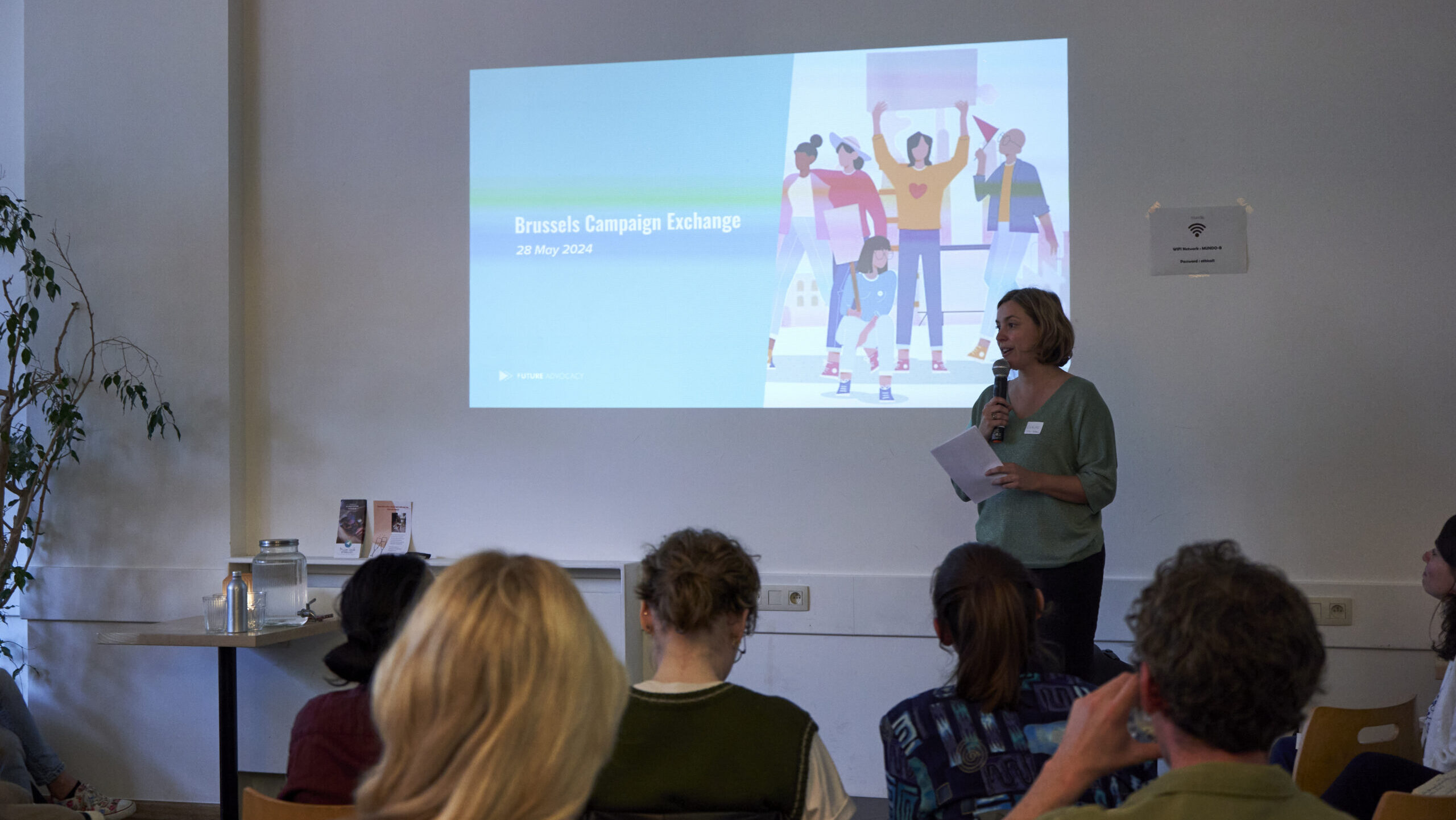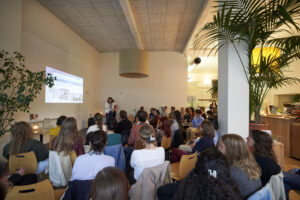
By Cooper Price
What do campaigns about school streets, gendered violence, international development, and packaging waste have in common?
In the minds of many, the answer is very little. Progressive movements for social change are often thought to be much more collaborative and united than they really are. In this field, silos form easily—as a result, urban, women’s rights, development, and waste advocates operate in their own lanes.
However, campaigns for positive change—whatever that change may be—are stronger together. Here at Future Advocacy, we believe that the cross-pollination of movements allows for cutting-edge advocacy to make the world a better place. That is why we decided to launch the Brussels Campaign Exchange, a forum to learn, share, and network with campaigners from non-profit organisations and social movements based in Brussels.
–
On May 28, we hosted our inaugural Brussels Campaign Exchange. The event featured a series of short, dynamic, and fast-paced presentations from campaigners on their work, their successes, their failures, and what they learned, followed by open discussion and networking.
Here are five invaluable insights we took away from the Brussels Campaign Exchange that any campaigner must know!
–
- There is no easy disruption to the status quo.
The Campaign Exchange’s first speaker, Pierre Dornier of Les Chercheurs d’Air, spotlighted his organisation’s campaign to reduce child exposure to air pollution via school streets.
Pierre demonstrated that, even with a universally valued objective like protecting children, campaigning against the status quo invites backlash. In the case of school streets, campaigners at Les Chercheurs d’Air had to grapple with opposition from car owners to the removal of their parking spaces. The organisation worked hard through creative campaigning, media, and stakeholder engagement to change the status quo.
Insight for campaigners: identify the small, day-to-day disruptions your action may cause and anticipate how to win over the people affected.
- Compromise is a difficult but necessary tool.
Irene Rosales of the European Women’s Lobby, the event’s second speaker, dove into their historic campaign for a European Union Directive on Combating Violence Against Women and Domestic Violence.
After years of advocacy on an EU Directive, the European Women’s Lobby campaigned extensively, facing strong opposition from some Member States. Eventually, the organisation celebrated the historic win for gender equality in Europe that the first ever Directive on violence against women and girls brought.
Insight for campaigners: reflect on what compromise means for your work and map out how negotiation can bring powerful progress, even if not perfection.
- Versatility is your strength.
Jonas Nitschke of the ONE Campaign brought forward his experience as a Youth Ambassador with the organisation campaigning against extreme poverty.
The ONE Campaign harnesses the energy of young change-makers to work across issue areas. Jonas reflected upon his advocacy ranging from COVID-19 to climate change to development on the African continent. To be versatile in advocacy is to be responsible and agile, campaigning where it is needed most.
Insight for campaigners: challenge yourselves to adopt a more intersectional and interdisciplinary campaigning approach in recognition of how one issue area can closely connect to another.
- Don’t get ambushed by your opposition.
The Campaign Exchange’s fourth speaker, Larissa Copello, shared Zero Waste Europe’s #GetBack Campaign to pass the EU Packaging and Packaging Waste Regulation.
In their quest to reduce single-use packaging and promote reusables, Zero Waste Europe encountered immense opposition from major corporate lobbyists. Fighting on uneven ground, the #GetBack Campaign mobilised new allies and advocacy tactics to withstand opposition and achieve a provisional EU agreement.
Insight for campaigners: invest in the values and people power that separate your campaign from well-resourced opposition—then stick by those assets in the face of opposition.
- We really are stronger together.
Each of the Campaign Exchange speakers brought a fresh perspective to the successes and challenges of advocacy work that transcend any one issue area. Perhaps the most valuable insight of the event is that social movements are, indeed, more effective and capable when they come together.
–
Future Advocacy is working hard to bring more opportunities for learning and engagement around communications and campaigns to organisations creating positive change. Follow us on LinkedIn and Twitter to stay up-to-date on the next Brussels Campaign Exchange!
